Introduction
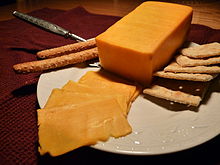
Cheddar and Colby are two popular cheese varieties that are widely loved and cherished by cheese enthusiasts all over the world. With their unique characteristics and flavors, both Cheddar and Colby offer a delightful experience for the taste buds. In this article, we will delve into the origins, characteristics, and uses of Cheddar and Colby cheese. By understanding the key differences between these two varieties, you can make an informed decision on which cheese to choose for your next culinary adventure. So, let’s explore the fascinating world of Cheddar and Colby cheese!
Overview Of Cheddar And Colby Cheese Varieties
Cheddar and Colby are two popular cheese varieties that offer distinct flavors and textures. Cheddar cheese, originating in England, is known for its firm and slightly crumbly texture, as well as its sharp and tangy flavor. It can be aged for several months to over two years, resulting in a range of flavor profiles. Colby cheese, on the other hand, originated in the United States and is known for its mild and creamy flavor. It has a softer and moister texture compared to Cheddar. Both cheeses have their unique characteristics and are widely enjoyed in various culinary dishes.
Historical Background Of Cheddar And Colby
Cheddar cheese boasts a rich historical background that dates back to the 12th century in England. It originated in the village of Cheddar, located in Somerset, where the cheese-making tradition thrived. The unique climate and limestone caves of this region contributed to the development of Cheddar’s distinct flavor and texture. On the other hand, Colby cheese has a more recent history, originating in the United States in the 19th century. It was first created by Joseph Steinwand in Wisconsin, a state renowned for its dairy production. The creation of Colby cheese was influenced by the traditional methods of making Cheddar.
Cheddar Cheese

Cheddar cheese is a popular variety known for its distinct flavor and creamy texture. Originating from the village of Cheddar in Somerset, England, this cheese has a rich history dating back to the 12th century. Cheddar is made from cow’s milk and is aged for a minimum of three months, although some varieties are aged for much longer. The aging process gives Cheddar its sharp, tangy flavor that becomes more pronounced with time. This versatile cheese is used in various culinary applications, from sandwiches and burgers to sauces and soups. Cheddar cheese is a favorite among cheese lovers worldwide.
Cheddar Cheese: Origin And Characteristics
Cheddar cheese has its origins in the village of Cheddar in Somerset, England. It is believed to have been produced as early as the 12th century. The cheese is made from cow’s milk and is known for its distinct flavor and creamy texture. Cheddar cheese undergoes an aging process that gives it a sharp, tangy taste which intensifies over time. The cheese comes in various forms including blocks, slices, and shredded. Cheddar cheese is a versatile option in the kitchen and is widely used in sandwiches, sauces, and other culinary creations.
Different Types Of Cheddar Cheese Aging Processes
Cheddar cheese undergoes different aging processes to achieve its distinct flavor and texture. The most common types of cheddar aging include Mild, Medium, Sharp, and Extra Sharp. Mild cheddar is aged for 2-3 months and has a creamy, buttery flavor. Medium cheddar is aged for 4-6 months, resulting in a slightly tangy taste. Sharp cheddar is aged for 6-12 months, giving it a robust, sharp flavor. Extra Sharp cheddar is aged for over a year, intensifying its tanginess. These different aging processes allow for a range of flavor profiles, catering to various preferences.
Colby Cheese
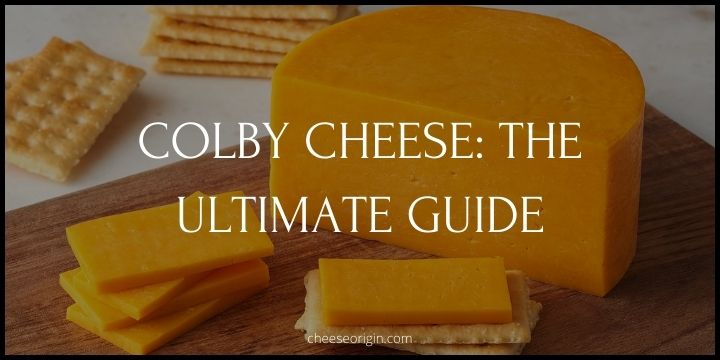
Colby cheese is an American-made cheese known for its milder taste and creamy texture. It originated in the town of Colby, Wisconsin, where it was first produced in the late 19th century. Colby cheese is made from cow’s milk and is similar to cheddar in appearance, but it has a sweeter and less acidic flavor profile. One key difference in the cheesemaking process is that the curds for Colby are rinsed with cold water, while cheddar curds are not. This rinsing process gives Colby its distinct characteristics, making it a popular choice for sandwiches, melting, and snacking.
Colby Cheese: Origins And Flavor Profile
Colby cheese originated in the town of Colby, Wisconsin in the late 19th century. It was first produced as a milder alternative to the sharper and more acidic cheddar cheese. Colby cheese is made from cow’s milk and is similar to cheddar in appearance, but it has a sweeter and less tangy flavor profile. Its flavor is creamy, slightly sweet, and buttery, making it a crowd-pleasing choice for cheese lovers. Colby cheese is often enjoyed on its own as a snack or used in sandwiches and melts.
Comparison Between Colby And Cheddar Cheese Texture
Colby and Cheddar cheese have distinct differences in terms of texture. Cheddar cheese is known for its smooth, dense, and compact texture, which becomes crumbly as it ages. On the other hand, Colby cheese has a more open and curdy texture. Colby’s texture is softer and more elastic, creating a slightly springy mouthfeel. This difference in texture is primarily due to the cheesemaking process, where Colby curds are rinsed with cold water, resulting in a looser structure. The texture variations between Colby and Cheddar add to the unique eating experience of each cheese variety.
Culinary Uses
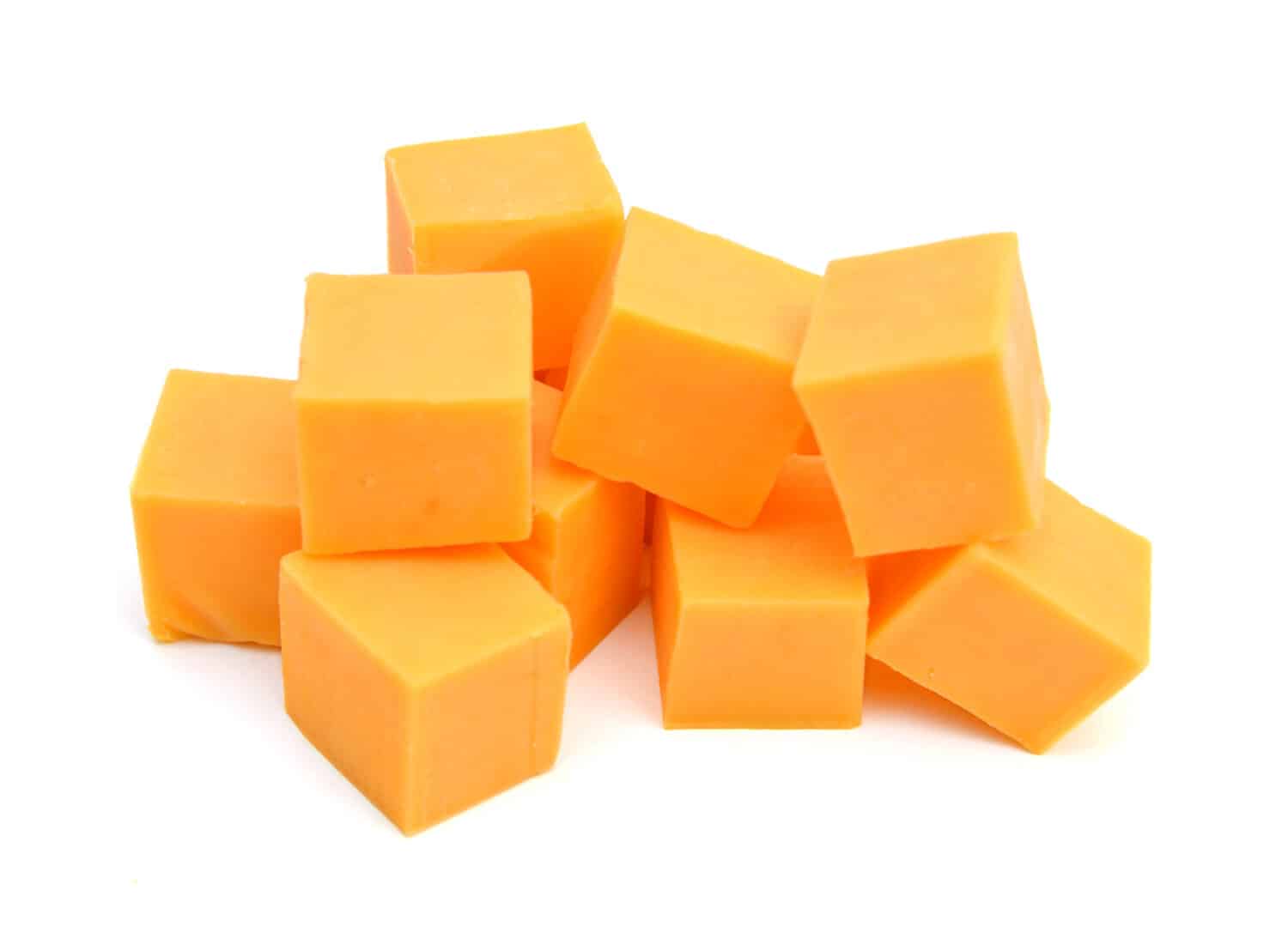
Cheddar cheese is incredibly versatile in the kitchen, making it an ideal choice for a variety of culinary applications. Its rich and tangy flavor profile pairs well with both sweet and savory dishes. From classic macaroni and cheese to grilled cheese sandwiches, Cheddar adds a deliciously melty and satisfying element. It can also be grated and used as a topping for salads, soups, and casseroles.
On the other hand, Colby cheese is often used in recipes that call for a milder cheese flavor. It melts beautifully, making it a popular choice for quesadillas, nachos, and cheese dips. Colby cheese can also be sliced and enjoyed in sandwiches or cubed for a cheese and charcuterie board.
Both Cheddar and Colby cheese are excellent choices for adding depth and flavor to dishes, so feel free to get creative in the kitchen and experiment with these delicious cheeses.
Cooking With Cheddar Cheese
Cheddar cheese is incredibly versatile in the kitchen, making it an ideal choice for a variety of culinary applications. Its rich and tangy flavor profile pairs well with both sweet and savory dishes. From classic macaroni and cheese to grilled cheese sandwiches, Cheddar adds a deliciously melty and satisfying element. It can also be grated and used as a topping for salads, soups, and casseroles. Cheddar cheese enhances the flavor of dishes and brings a creamy, cheesy goodness to any recipe. It’s a staple ingredient that can elevate the taste of your favorite meals.
Recipes Featuring Colby Cheese As A Key Ingredient
Colby cheese adds a creamy and mild flavor to a variety of recipes, making it a popular choice as a key ingredient. One classic recipe that features Colby cheese is the Colby Jack Mac and Cheese. This comforting dish combines Colby cheese with elbow macaroni, milk, and butter to create a creamy and cheesy sauce. Another delicious recipe is the Colby Jack Stuffed Chicken. This dish involves stuffing chicken breasts with a mixture of Colby cheese, garlic, and herbs, then baking them until tender and the cheese is melted. These recipes highlight the versatility and deliciousness of Colby cheese in different culinary creations.
Nutritional Value
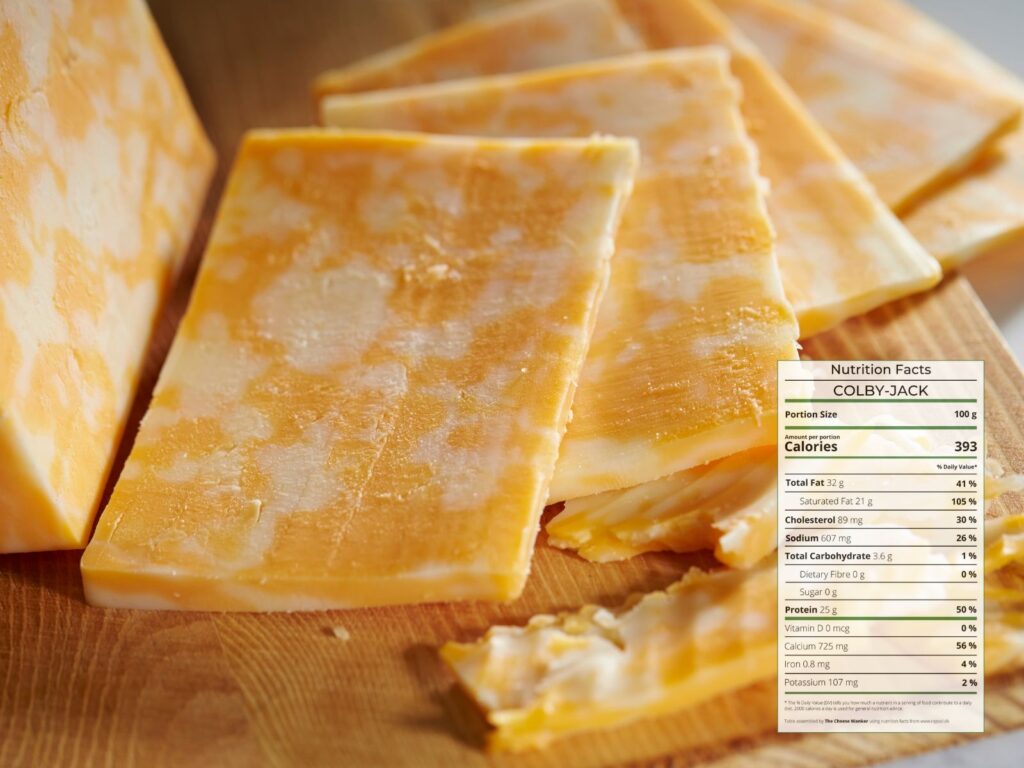
Both Cheddar and Colby cheese offer similar nutritional value. They are both high in protein and fat, while containing very few carbohydrates. While Cheddar cheese tends to have slightly more calories, both varieties provide essential nutrients such as calcium, phosphorus, and vitamin B12. It is important to consume these cheeses in moderation due to their high fat content. Additionally, individuals watching their carbohydrate intake may prefer Cheddar cheese over Colby. Overall, both Cheddar and Colby cheese can be enjoyed as part of a balanced diet, providing a good source of protein and essential nutrients.
Nutritional Comparison Between Cheddar And Colby Cheese
When it comes to nutritional value, both Cheddar and Colby cheese offer similar benefits. They are both rich in protein and fat, while containing very few carbohydrates. Cheddar cheese tends to have slightly more calories compared to Colby cheese. However, both varieties are excellent sources of essential nutrients such as calcium, phosphorus, and vitamin B12. It is important to consume these cheeses in moderation due to their high fat content. Additionally, individuals watching their carbohydrate intake may prefer Cheddar cheese over Colby. Overall, both Cheddar and Colby cheese can be enjoyed as part of a balanced diet, providing a good source of protein and essential nutrients. [^25^]
Health Benefits Of Consuming Cheddar And Colby Cheese In Moderation
Consuming Cheddar and Colby cheese in moderation can provide several health benefits. These cheeses are excellent sources of protein, which is essential for muscle growth and repair. They also contain calcium, which is crucial for maintaining strong bones and teeth. Additionally, Cheddar and Colby cheese are rich in phosphorus, which helps in the proper functioning of cells and tissues. Moreover, these cheeses are a good source of vitamin B12, which plays a vital role in nerve function and the production of red blood cells. However, it is important to remember that moderation is key due to the high fat content of these cheeses.
Conclusion
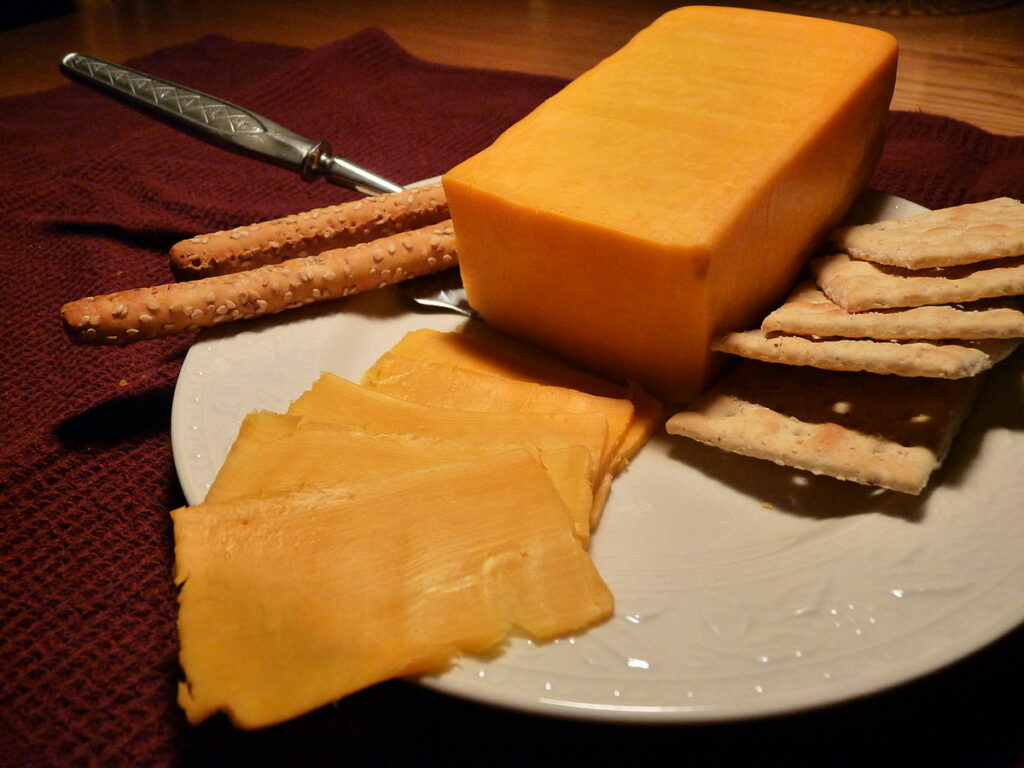
In conclusion, understanding the differences between Cheddar and Colby cheese varieties is key for cheese enthusiasts and culinary adventurers alike. By exploring their origins, flavors, textures, and culinary uses, we gain a deeper appreciation for the diverse world of cheese. Cheddar cheese is known for its sharpness and versatile cooking applications, while Colby cheese offers a milder flavor and creamy texture. Both cheeses provide valuable nutrients and can be enjoyed in moderation as part of a balanced diet. So whether you prefer the boldness of Cheddar or the subtlety of Colby, there’s a cheese for every palate.
Key Differences Between Cheddar And Colby Cheese Varieties
Cheddar and Colby cheese varieties have distinct differences that set them apart. Cheddar cheese is known for its sharpness and bold flavor, while Colby cheese offers a milder and sweeter taste. In terms of texture, Cheddar cheese has a crumbly and dense consistency, whereas Colby cheese is more creamy and smooth. Another key difference is the aging process. Cheddar cheese can be aged for several years, resulting in a stronger flavor, while Colby cheese is typically aged for a shorter period of time. These variations make each cheese unique and cater to different preferences.
Popular Pairings And Serving Suggestions For Cheddar And Colby Cheese
Cheddar cheese and Colby cheese have their own unique flavors that can be complemented with a variety of pairings. Cheddar cheese pairs well with apples, grapes, and crackers, making it a great addition to a cheese platter. It can also be melted onto burgers or used in grilled cheese sandwiches for a deliciously gooey texture. Colby cheese, with its milder flavor, can be enjoyed with sliced deli meats and pickles for a classic sandwich. It also melts beautifully in quesadillas or on top of nachos for a cheesy delight. Whether it’s Cheddar or Colby, these cheeses can elevate any dish and provide a burst of flavor.
FAQ About Cheddar Vs Colby: Exploring Cheese Varieties
Q: What is the main difference between Cheddar and Colby cheese?
A: The main difference between Cheddar and Colby cheese lies in their texture and flavor profile. Cheddar is aged for a longer period and has a sharper, more pronounced taste, while Colby is milder and has a softer, smoother texture.
Q: Can Cheddar and Colby cheese be used interchangeably in recipes?
A: While Cheddar and Colby cheese can be used interchangeably in some recipes, it’s essential to consider their distinct flavors. Cheddar’s sharpness may overpower delicate dishes, while Colby’s mildness may not provide enough flavor in some recipes.
Q: Which cheese is better for melting – Cheddar or Colby?
A: Cheddar is generally considered better for melting due to its higher fat content and stronger flavor profile. Colby can also melt well but may not yield the same richness and depth of flavor as melted Cheddar.
Q: Are there any nutritional differences between Cheddar and Colby cheese?
A: Both Cheddar and Colby cheese are good sources of calcium and protein. However, Cheddar tends to have a slightly higher fat content than Colby. It’s essential to enjoy cheese in moderation as part of a balanced diet.
Q: Can lactose-intolerant individuals consume Cheddar and Colby cheese?
A: Some lactose-intolerant individuals may tolerate aged cheeses like Cheddar and Colby better than fresh dairy products due to the lower lactose content caused by the aging process. It’s best to consult a healthcare provider for personalized dietary advice.
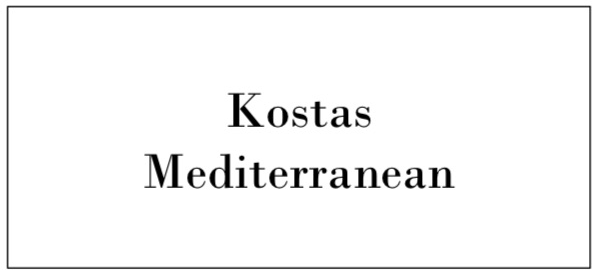
Kostas Mediterranean is a family-owned Greek restaurant located in North Vancouver. Our passion for bringing the authentic flavors of Greece to the local community has been the driving force behind our establishment. We take pride in offering a warm and welcoming atmosphere where guests can experience the true essence of Greek hospitality. Our journey began with Kostas, whose culinary skills and love for Greek cuisine inspired the creation of the restaurant. With a desire to share his family recipes and traditions, Kostas set out to create a dining experience that captures the spirit of Greece. The result is a menu that showcases a delightful blend of traditional and modern Greek dishes prepared with the finest and freshest ingredients.